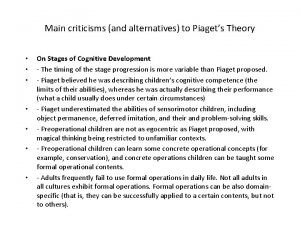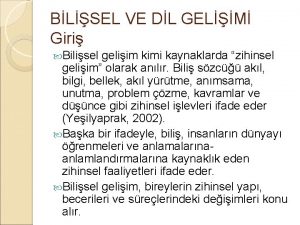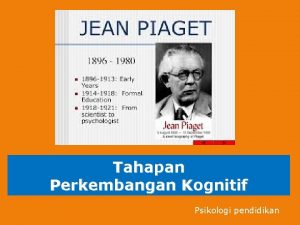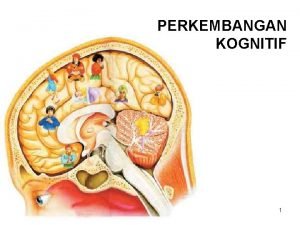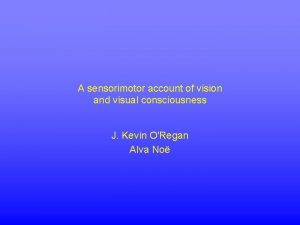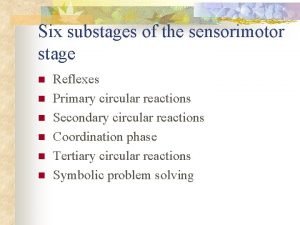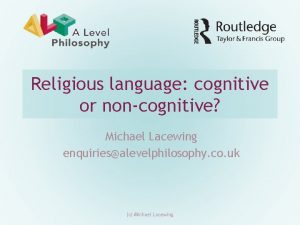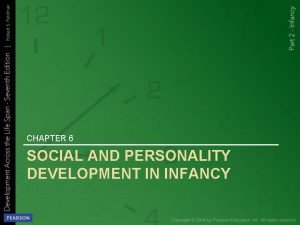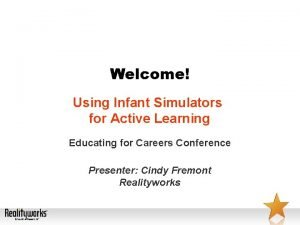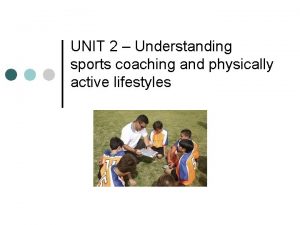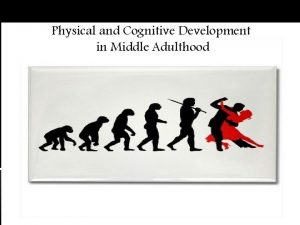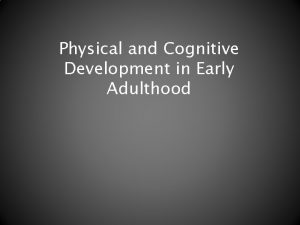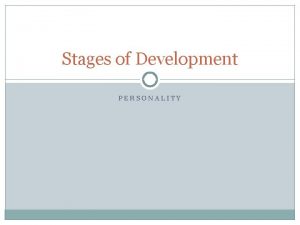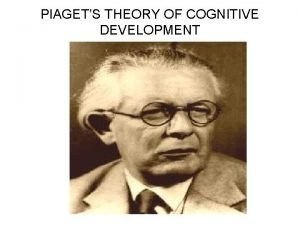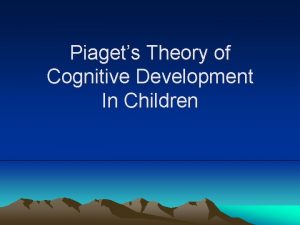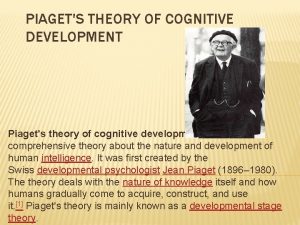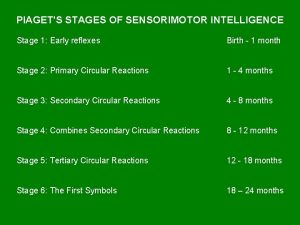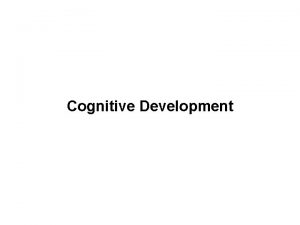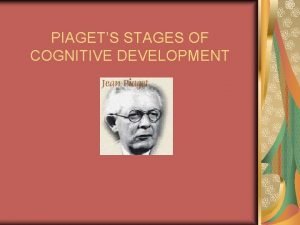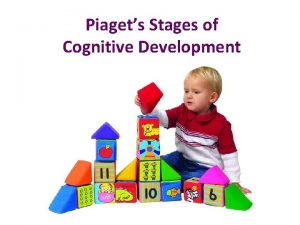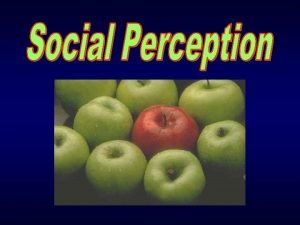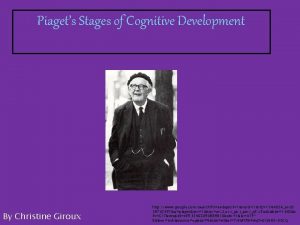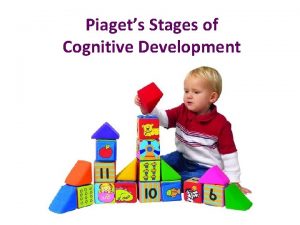Cognitive Development of an Infant Piagets Sensorimotor Stages
















- Slides: 16

Cognitive Development of an Infant

Piaget’s Sensorimotor Stages • Lasts from birth to about age 2 • Babies learn through their senses and their own actions. • Sensory stimulation is vital to brain development and fostering intellectual activity. • Babies put things in their mouths to learn through their senses.

Piaget’s Sensorimotor Stages • • • Acts intentionally to produce results Begins to solve problems Imitates others Explores and experiments Begins imaginative thinking

Object Permanence • Knowing that an object still exists even when it is out of sight. • Show video clips of examples

Language Development • • • Begins with crying Then cooing Babbling Single words Putting a few words together

Parentese • The intentionally oversimplified nonstandard musical manner of speech. • Imitative of young children learning to talk • Used by adults in talking to toddlers and infants. • Often accompanied by exaggerated facial expressions.

How to Speak Parentese • Parentese video clip • How to speak Parentese video clip

Why Speak Parentese? • Helps parents and caregivers connect to their babies • Infants actually prefer parentese to adult conversations. They will turn their head to hear it. • Babies not only enjoy the high-pitched sounds, they also like watching our faces as we talk to them.

Why Speak Parentese? • Baby talk uses sounds and nonsense words • Try and read this sentence: – “oo es da cootest witto baby in da wold” • Parentese uses actual words, in short and simple sentences, often repeated over and over again

Why Speak Parentese? • The elongated vowels, high pitch, exaggerated facial expressions and short, simple sentences actually help infants learn language. • Their brains are “mapping” the sounds they are hearing, and talking in a way that gets their attention helps them learn to speak and understand language.

Why Speak Parentese? • We tend to pronounce words precisely when we talk to babies – Pulling out the vowel sounds and clearly voicing consonants – In marked contrast to the hurried way we speak to other adults.

Importance of Literacy • Begin reading to a child as soon as they are born and make it part of the daily routine. • Children should be read to at least 20 minutes a day. • Interact with the child while you are reading to them.

Importance of Literacy • Reading together builds a strong parent and child relationship. • Children’s books do not have to be expensive to be educational. • Reading to a child is one of the best ways to help language development and reading readiness.

Importance of Literacy • Encourage an interest in books and reading by choosing books that appeal to children and their ages. Nursery Rhymes enhance a child’s cognitive skills. • Books help a child learn to separate fact from fantasy. • It is one of the best ways to help build independence and self-esteem.

Importance of Literacy • Books are a great way to understand discuss real life experiences (death, divorce, fears, etc. ) • Dyslexia is a learning disability in which the child uses non-traditional methods to learn to read.

Infants and Television • What is the latest research about television and infants? • Your job is to find out. • Hand out Infant TV assignment. • Due next class period.
 Kognitiva perspektivet grundare
Kognitiva perspektivet grundare Criticisms of piagets theory
Criticisms of piagets theory Piaget ve vygotsky dil gelişim karşılaştırılması
Piaget ve vygotsky dil gelişim karşılaştırılması Identitas diri
Identitas diri Hubungkan 16 titik dengan 6 garis tanpa putus
Hubungkan 16 titik dengan 6 garis tanpa putus Sensorimotor polyneuropathy
Sensorimotor polyneuropathy Jean piaget biography
Jean piaget biography A sensorimotor account of vision and visual consciousness
A sensorimotor account of vision and visual consciousness Substages of sensorimotor
Substages of sensorimotor A sensorimotor account of vision and visual consciousness
A sensorimotor account of vision and visual consciousness Cognitive and non cognitive religious language
Cognitive and non cognitive religious language Personality development in infancy
Personality development in infancy Cone of learning
Cone of learning Governance
Governance Autonomous stage of learning
Autonomous stage of learning Middle adulthood cognitive development
Middle adulthood cognitive development Cognitive development in early adulthood
Cognitive development in early adulthood

